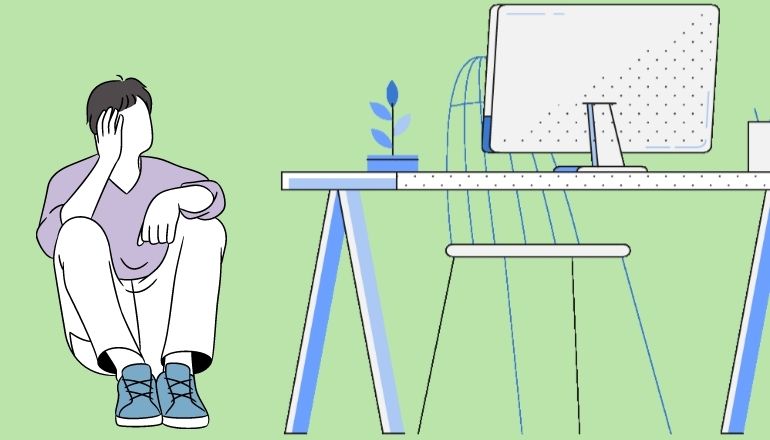What is academic burnout, its causes, and signs?
Most people are familiar with what burnout is. It is a daunting term normally used to describe overworked and over-exhausted employees. Despite its popularity as a work-related disorder 2, many people fail to realize that burnout can befall on students as well. Known as academic-burnout, or school-burnout, it is a grueling syndrome that students everywhere face. According to Shreffler et al. (2020), students are likely to be susceptible to burnout when they are facing high-stakes exams or writing major academic papers 3. It was found that factors that cause academic-burnout revolves around competitive education system, difficult exams, internal-external pressures, peer pressure, excessive demands, expectations and so on 1. Academic-burnout is nothing short of a serious matter because its consequences are just as dire as those working adults face. Consequences can range from depression, loss of motivation and even suicide1.
With reference to the School Burnout Inventory (SBI), academic-burnout consists of three components or signs: school-related exhaustion, school-related cynicism and lack of school-related efficacy 2. School-related exhaustion include strained-feelings, chronic tiredness, muscle aches and disrupted sleep patterns that all caused by exams and schoolwork. School-related cynicism refers to the manifestation of indifferent attitude toward exams and schoolwork, loss of interest in one’s academic pursuits and see meaninglessness in the academic journey. Lack of school-related efficacy concerns with the decreased feelings of competence, decreased in successful achievements and lack of accomplishment in schoolwork and in school.
Tips to reduce burnout
Building up resiliency and decreasing stress is imperative in preventing the development of academic-burnout. Hence, Shreffler et al. (2020) had developed some tips to help reduce burnout 3.
Tip 1 is to exercise3. According to Shreffler et al. (2020), using strenuous exercises to regulate emotions and stress is very beneficial to students who already have been practicing regular exercises in a daily basis 3. For less active students, it is beneficial to make a list of activities that are not so strenuous and just require simple body movements like walking and stretches. Students are advised to carry out those activities for periods of 15-20 minutes twice a day.
Tip 2 is to limit study hours per day3. Students should stop comparing themselves with others and stop the feeling that they are not achieving their potential when they know that others are studying linger hours. Just as the productivity of studying time is highly subjective, the same applies to the breaking point of a student. It is advised that when the breaking point is reached, the advantages of rest outweighs the advantages of studying. Shreffler et al. (2020) provided a general rule where breaks from studying should be taken when it is difficult to pay attention.
Tip 3 is to have a support system3. It cannot be reiterated enough that no one can or should get through problems alone, for as the saying goes, no man is an island. By practicing the habit of asking for help or even just talking to others on a regular basis, one can diminish the feelings of isolation and increase the chances of getting support and help. Having someone to listen to our problems would do wonderous to our emotional state as weights more often then not could be lifted from our chests.
Tip 4 is to dedicate time for fun3. Think of the saying ‘all work and no play makes Jack a dull boy’. Every now and then, we need to enjoy and unwind ourselves. It was stated that the psychological concept of operative conditioning can be applied to study strategies by having rewards when a goal is achieved. It can be having a dessert, light snack, watching drama or calling a friend. By having those breaks and events as rewards for hard work, it can help train the brain to view studying as a worthwhile endeavor.
Tip 5 is having enough sleep3. Sleep is by far the most frequently sacrificed necessity in a student’s life. Most students have experienced the dreaded scenario where burning the midnight oil was necessary to catch up on reading or writing. Since sleep disruption is a hallmark of burnout, the prioritization of restful sleep is one of the best ways to prevent burnout. An important point here is to stop the association of sleep with laziness or failure to persevere. It should be borne in the mind of all students that slumber is important for the cementing of long-term memories and better attention span, which both are extremely important during exam period.
Written by: Ryan Wong (Aizen) (MPS Psychological Services Intern)
Supervisor: Mr. Liang Yaw Wen
References
- Aypay, A. (2017). A positive model for reducing and preventing school burnout in high school students. Educational Sciences: Theory & Practice, 17(4). https://doi.org/10.12738/estp.2017.4.0173
- Salmela-Aro, K., Kiuru, N., Leskinen, E., & Nurmi, J. E. (2009). School burnout inventory (SBI) reliability and validity. European journal of psychological assessment, 25(1), 48-57. https://doi.org/10.1027/1015-5759.25.1.48
- Shreffler, J., Huecker, M., Martin, L., Sawning, S., Thé, S., Shaw, M. A., Mittel, O., & Holthouser, A. (2020). Strategies to Combat Burnout During Intense Studying: Utilization of Medical Student Feedback to Alleviate Burnout in Preparation for a High Stakes Examination. Health Professions Education, 6(3), 334-342. https://doi.org/10.1016/j.hpe.2020.04.009























